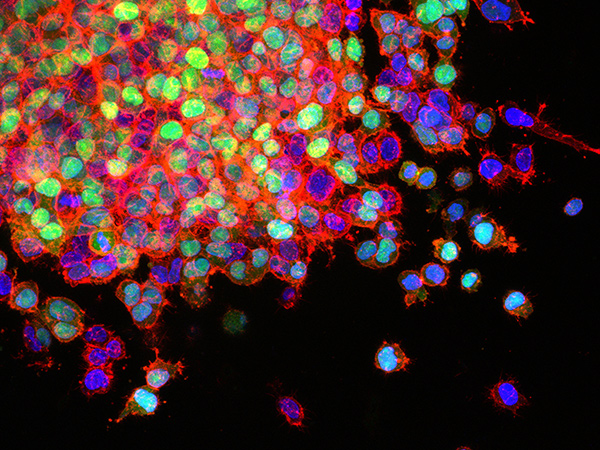First Targeted Therapeutic for Patients with Lung Cancer Harboring Certain EGFR Mutations
The FDA granted accelerated approval to the first targeted therapeutic and a companion diagnostic for certain adult patients with non-small cell lung cancer that tests positive for specific mutations in a protein that helps cancer cells spread.
The U.S. Food and Drug Administration (FDA) has granted accelerated approval to amivantamab-vmjw (Rybrevant) to treat adult patients with locally advanced or metastatic non-small cell lung cancer whose disease has progressed on or after treatment with a platinum-based chemotherapy and who have cancer that tests positive for epidermal growth factor receptor (EGFR) exon 20 insertion mutations.
At the same time, the FDA also approved a companion diagnostic test, Guardant360 CDx, to identify patients with the EGFR exon 20 insertion mutations who may be candidates for the treatment.

Amivantamab-vmjw is a bispecific antibody, which is a form of targeted therapy that takes aim at two different receptors—EGFR and MET—on the surface of lung cancer cells. EGFR exon 20 insertion mutations are a subtype of one of the most common types of genetic alternations found in some non-small cell lung cancers.
Data to demonstrate the efficacy for this approval stems from 81 patients who were part of a multicenter, non-randomized, open label, multicohort clinical trial. The participants received amivantamab-vmjw once weekly for four weeks and then every two weeks until their disease progressed or they experienced a level of unacceptable toxicity. The overall response rate was 40 percent, with a median response duration of 11.1 months.
Non-small cell lung cancer is the most common form of lung cancer. According to federal statistics, it was predicted that there would be approximately 236,000 new cases of lung and bronchus cancer diagnosed in 2021 in the U.S.
Amivantamab-vmjw and the companion diagnostic test were granted accelerated approval by the FDA on May 21, 2021. Accelerated approval means continued approval may be contingent upon a confirmatory trial.
